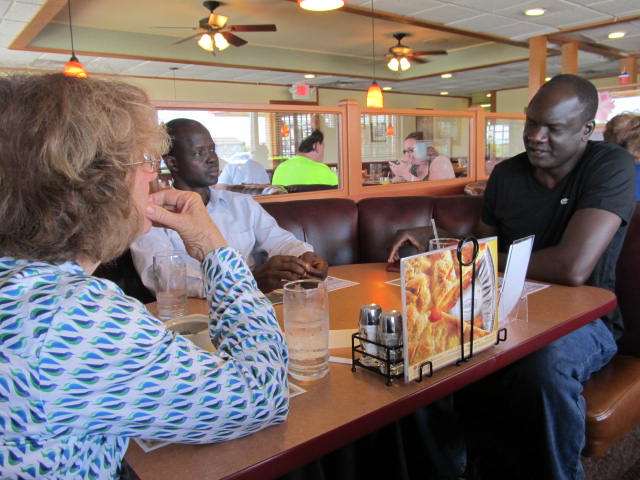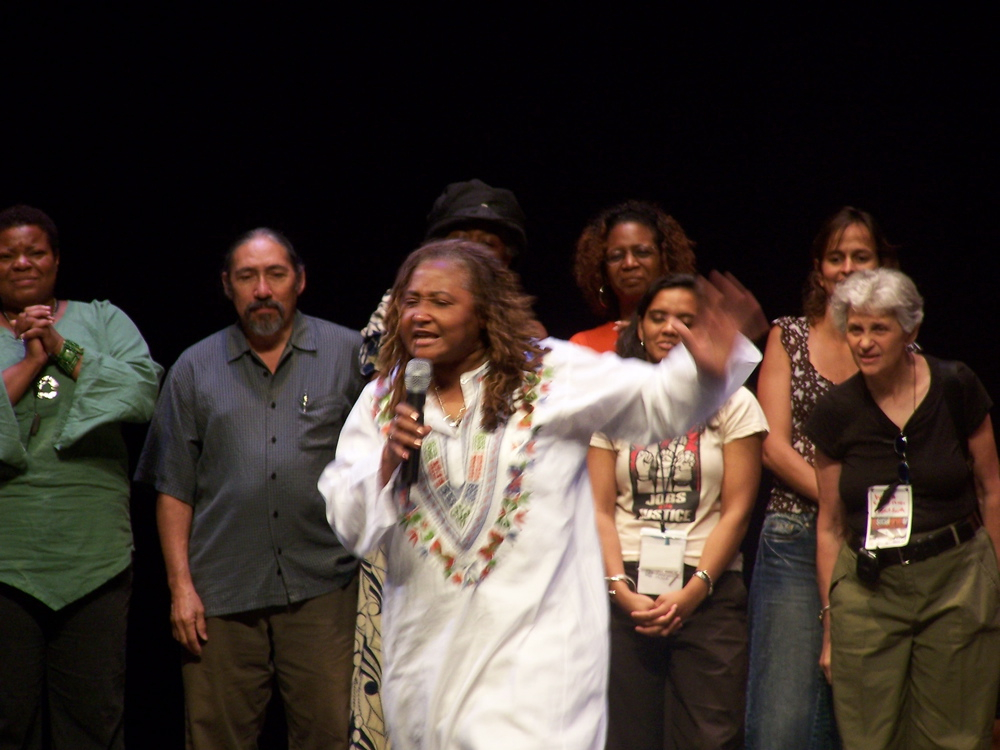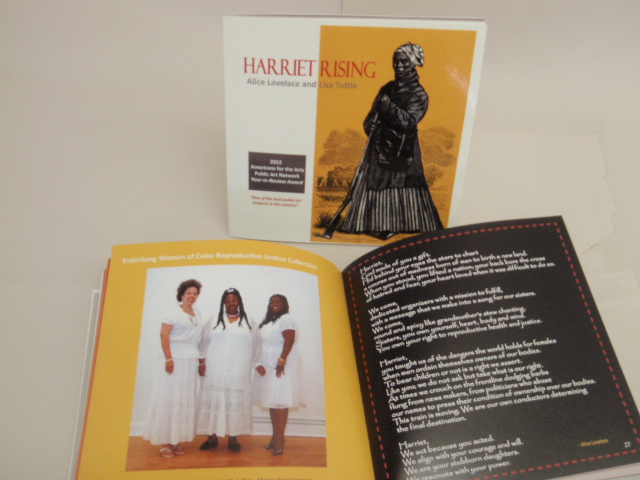The Hummingbirds of Elizabeth House
Marcia Arrieta blogs about her experience teaching a P&W–supported writing workshop series at Elizabeth House, a place of refuge for homeless pregnant women and their children in Pasadena, California. Arrieta is a poet, artist, and teacher, whose work appears in Of/with, Alba, Rivet, So to Speak, 13th Moon, Eratio, Catch & Release, Alice Blue, Melusine, Osiris, Web Conjunctions, Sugar Mule, Cold Mountain Review, Dusie, and the Last VISPO Anthology, among others. The author of one poetry book, triskelion, tiger moth, tangram, thyme (Otoliths, 2011), and two chapbooks, experimental: (Potes & Poets, 2000) and the curve against the linear/An Uncommon Accord (Toadlily Press, 2008), she received an MFA in poetry from Vermont College. Over the years, she has led numerous writing workshops at Franklin High School and John Adams Middle School in Los Angeles, and The Women’s Room and Centennial Place in Pasadena. Arrieta edits and publishes Indefinite Space, a poetry/art journal.
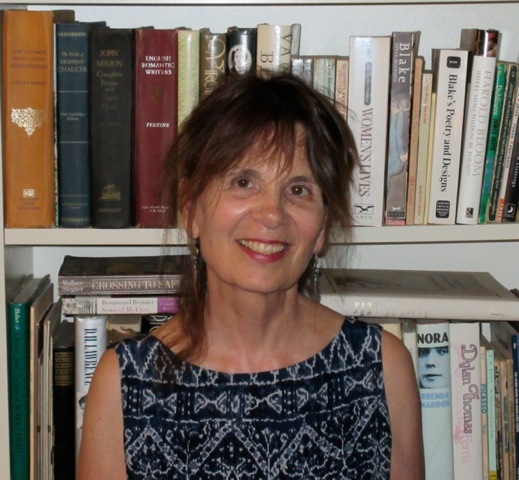 In the first poetry/writing workshop in a series sponsored by Poets & Writers at Elizabeth House in Pasadena, California, a young mother writes about a hummingbird:
In the first poetry/writing workshop in a series sponsored by Poets & Writers at Elizabeth House in Pasadena, California, a young mother writes about a hummingbird:
She looked at me and then flew away.
That’s when I knew on the floor—I shouldn’t stay.
Five weeks later at the culminating reading and book publication of Writing from Elizabeth House, a hummingbird hovers in the center of the cover collage. The hummingbird, a symbol of goodness, sweetness, and light, became a symbol for us of perseverance, writing, and communication, as did Maya Angelou’s powerful poem “And Still I Rise.”
The mission of Elizabeth House is “to provide shelter, hope, and support to homeless pregnant women and their children, addressing the physical, emotional, spiritual, and economic needs in a nurturing atmosphere.”
When I first arrived there to lead my workshop, I learned that not only would I have eager, creative young women around the table, but also their babies—ranging in age from weeks old to six months. Needless to say, we had a lively time between the reading, discussing, writing, and sharing of our work, and the babies—sometimes crying, nursing, content, yelling, sleeping (ah, for the baby sleeping!).
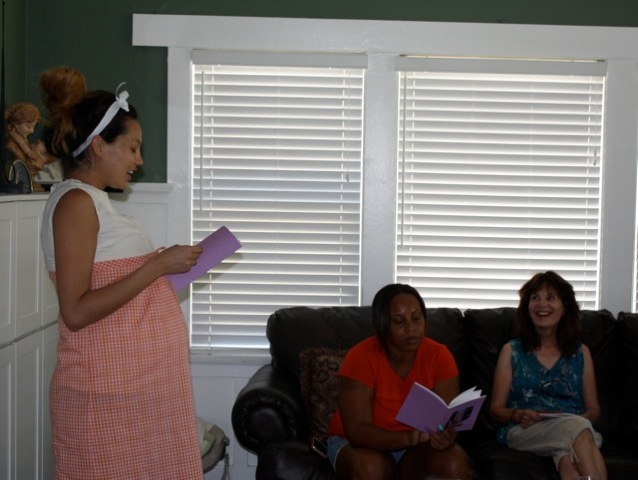 Throughout the workshops, several women told me they were so happy to be writing again and in touch with their creativity. One woman expressed her gratitude for the workshops since they were exactly what she needed at this time in her life, with a six-month-old and her uncertainty as to a job and place to live after Elizabeth House. Another woman revealed she never wrote or read poetry, but by the final workshop, she was able to express herself in a beautiful poem entitled “Life.”
Throughout the workshops, several women told me they were so happy to be writing again and in touch with their creativity. One woman expressed her gratitude for the workshops since they were exactly what she needed at this time in her life, with a six-month-old and her uncertainty as to a job and place to live after Elizabeth House. Another woman revealed she never wrote or read poetry, but by the final workshop, she was able to express herself in a beautiful poem entitled “Life.”
At the reading, the audience was very impressed with the quality of the women’s work—especially the honesty and depth of thoughts and emotions expressed. The book I created for them will always be a reminder of their time at Elizabeth House.
I was amazed and inspired by these young women—their lives, their babies, their writing. It was a privilege to work with them and learn of their dreams, struggles, and strength. I think I brought them optimism and hope through the literature we analyzed and the biographies of the poets and writers we studied—Maya Angelou, Joy Harjo, Nikki Giovanni, Langston Hughes, Edgar Lee Masters, Emily Dickinson, Jimmy Santiago Baca, and Audre Lorde—many of whom also experienced difficult times, but ultimately triumphed.
Photo (top): Marcia Arrieta. Credit: Kevin Joy. Photo (bottom): Elizabeth House workshop participants and Marcia Arrieta (at right). Credit: Kali Ratzlaff.
Major support for Readings & Workshops in California is provided by the James Irvine Foundation. Additional support comes from the Friends of Poets & Writers.







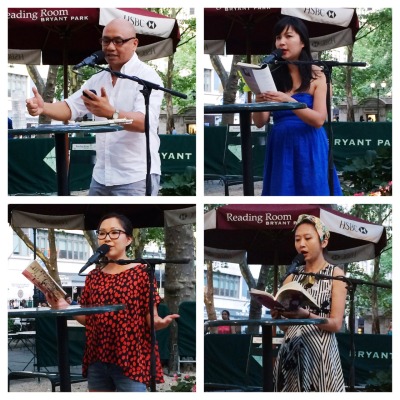
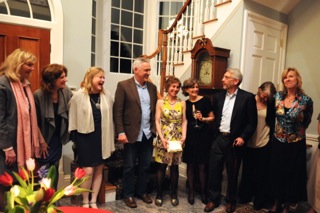
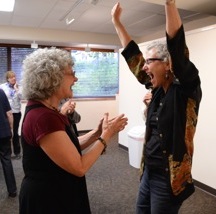
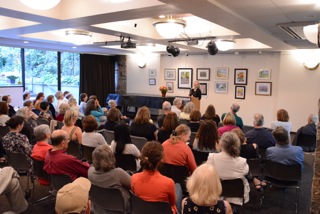
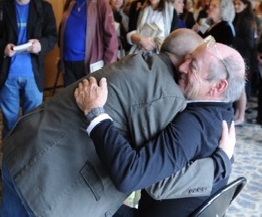
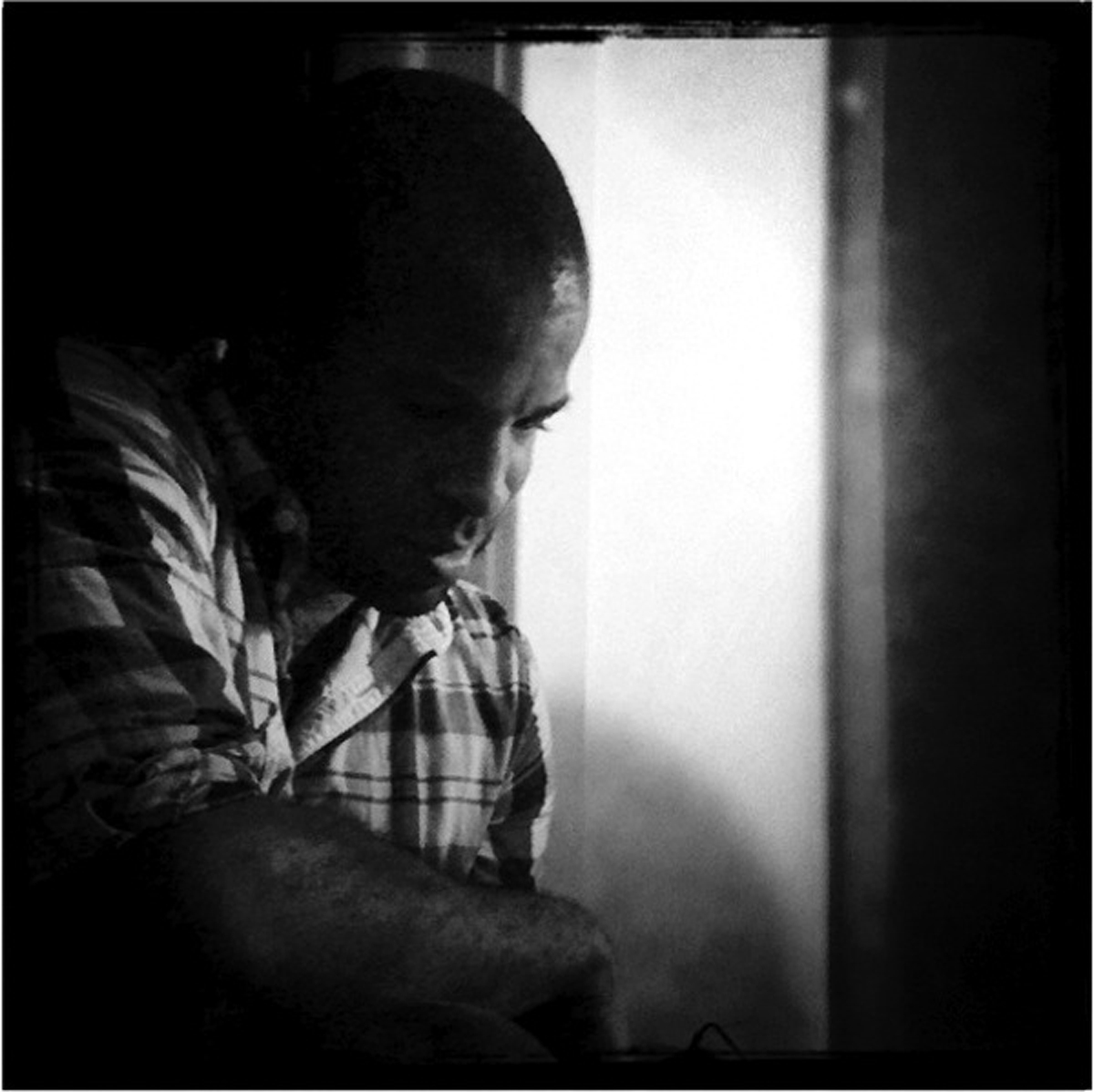 What are your reading dos?
What are your reading dos?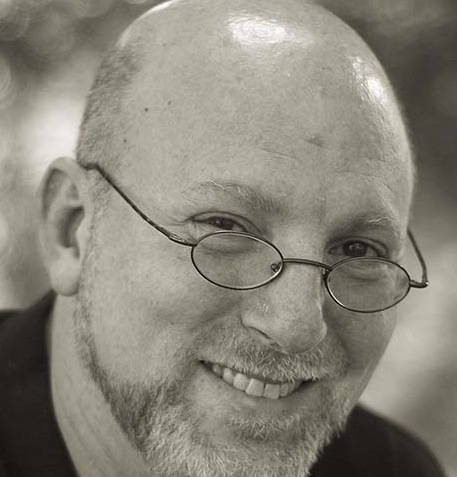
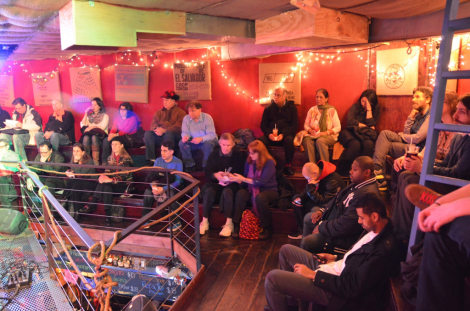
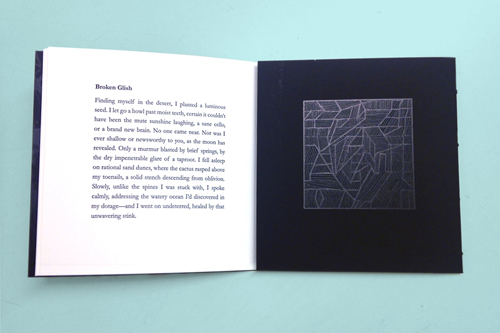
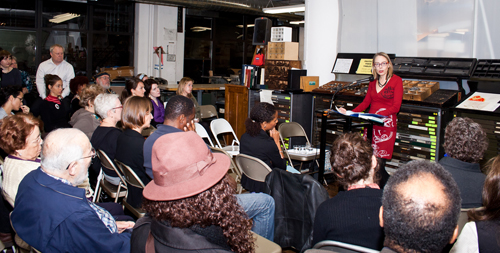

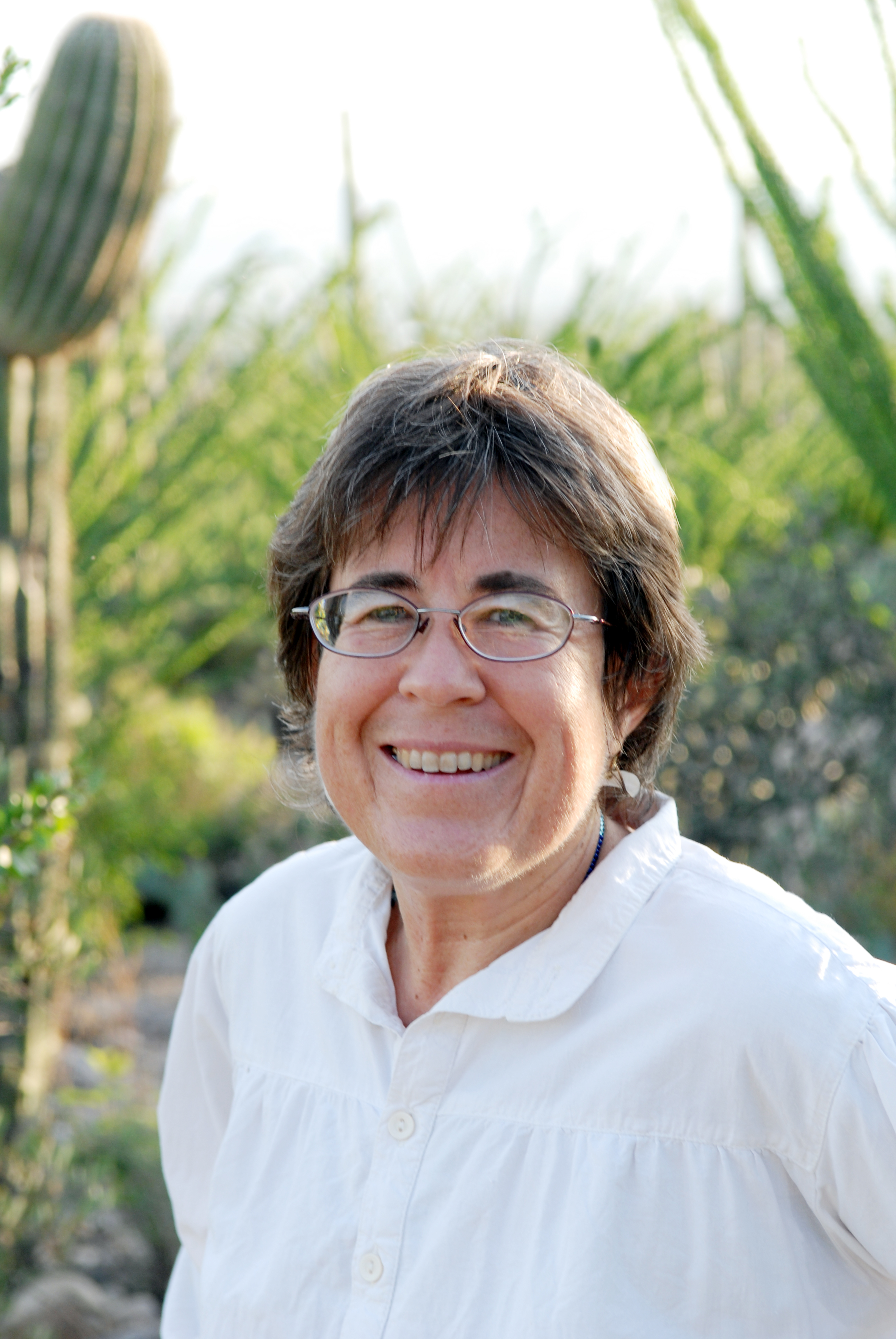 What techniques do you employ to help shy writers open up?
What techniques do you employ to help shy writers open up?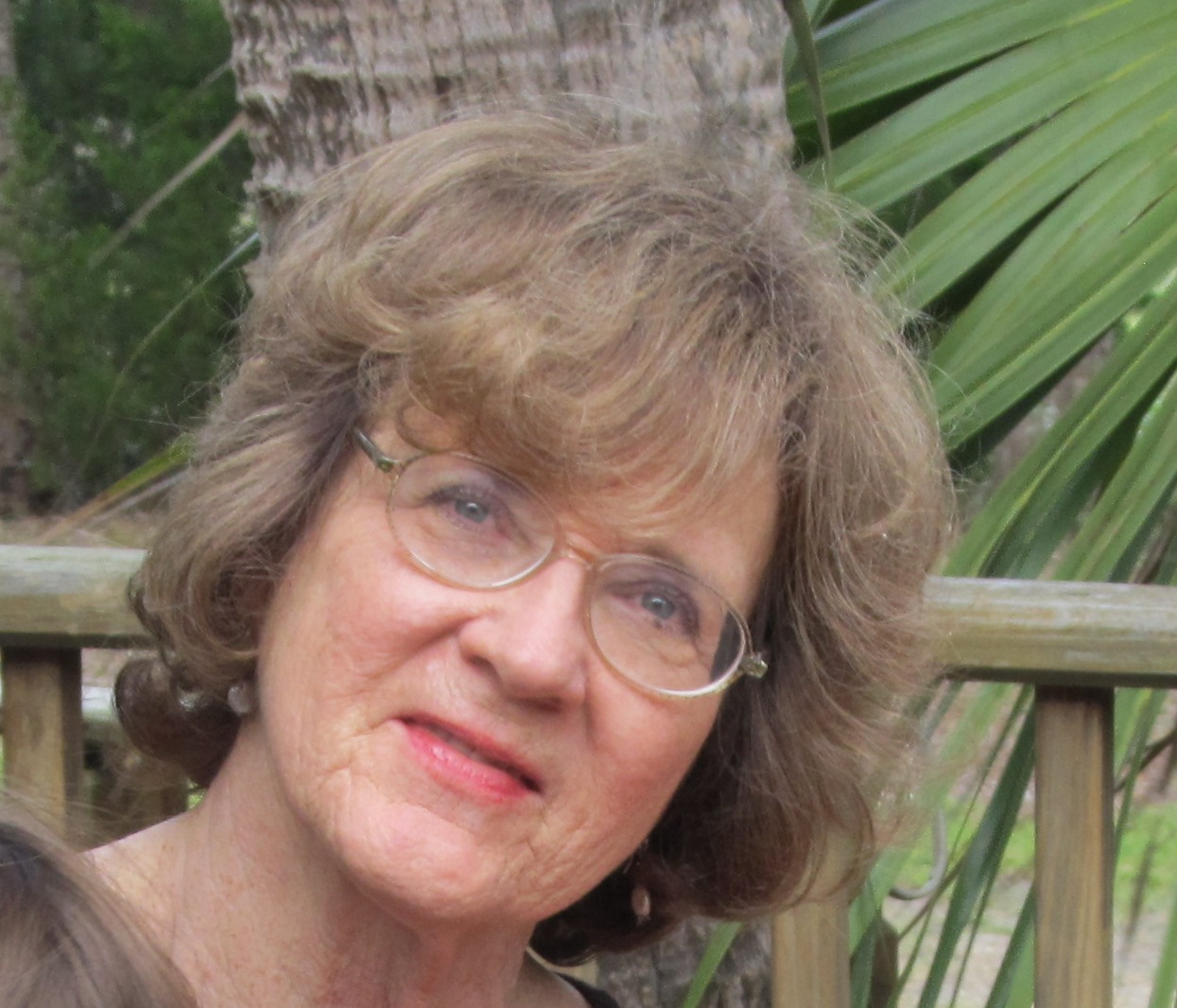 On the other end of the phone, a willing librarian listened: Would a library in north-central New York State be interested in a former Lost Boy of Sudan and his coauthor reading and discussing their recent book about his experience fleeing death in a religious/ethnic war, and his subsequent life adapting to Atlanta and now living on two continents?
On the other end of the phone, a willing librarian listened: Would a library in north-central New York State be interested in a former Lost Boy of Sudan and his coauthor reading and discussing their recent book about his experience fleeing death in a religious/ethnic war, and his subsequent life adapting to Atlanta and now living on two continents?